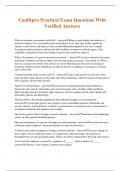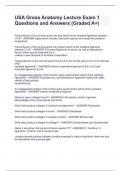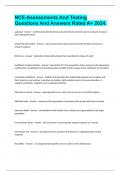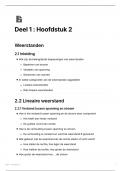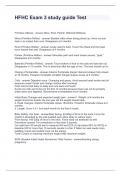Lecture notes
Professional Conduct & Regulation Notes- Scored 100/100 (Competent)
Comprehensive and detailed exam-ready notes - Content covers all SGSs in the modules (BPP University)- Includes guidance to every topic in the module including code of conduct issues and includes examples and model answers from SGSs and mock papers- 2019/20 notes.
[Show more]




